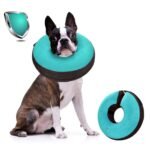Alternatives to Cat Litter: Eco-Friendly & Affordable Options

For cat owners looking to reduce their environmental footprint without compromising on their furry friend's comfort, exploring alternatives to cat litter is a step in the right direction. Traditional clay-based cat litters, while popular, are not the most sustainable option. They are often strip-mined, a process that is detrimental to the environment, and they do not biodegrade easily. Fortunately, there are several eco-friendly and affordable alternatives to cat litter that are not only better for the planet but can also offer superior odor control, be more comfortable for your cat, and even contribute to a healthier home environment. In this article, we will delve into some of the most promising alternatives to cat litter, including pine wood pellets, wheat-based litter, paper-based kitty litter, coconut coir litter, corn-based litter, and the traditional alternative, sand. Each of these options has its unique benefits and could be the perfect solution for your cat's needs and your environmental concerns.
Pine Wood Pellets: A Natural Choice
One of the most popular alternatives to cat litter is pine wood pellets. Made from compressed sawdust, pine pellets are a natural, biodegradable option that offers excellent odor control and absorbency. When wet, the pellets break down into sawdust, which can then be composted or disposed of in an eco-friendly manner. Unlike clay-based litters, pine wood pellets are lightweight, making them easier to handle and transport. Additionally, they are virtually dust-free, which is beneficial for cats and owners with respiratory issues. The natural pine scent also helps to neutralize odors without the use of artificial fragrances, providing a fresh and clean environment for your cat's litter box. However, some cats may need time to adjust to the texture of the pellets, so it's recommended to gradually introduce pine wood pellets by mixing them with your current litter and slowly increasing the proportion over time.
Wheat Based Litter: Sustainable and Safe
Another excellent alternative to cat litter is wheat-based litter. This type of litter is made from naturally processed wheat, which clumps when wet and is easy to scoop. It's a sustainable option, as it utilizes a renewable resource and is completely biodegradable. Wheat-based litter is also safe for cats and kittens, even if ingested, which can provide peace of mind for pet owners. The natural starches in the wheat neutralize odors on contact, keeping the litter box smelling fresh without the need for chemicals or artificial fragrances. Additionally, wheat-based litter is dust-free and soft on paws, making it a comfortable choice for your cat. As with pine wood pellets, transitioning your cat to wheat-based litter may require a gradual mix with their current litter to allow them to adjust to the new texture and scent.
Paper Based Kitty Litter: Recycled and Gentle
For cat owners concerned about waste and sustainability, paper-based kitty litter is a fantastic alternative to cat litter. Made from recycled paper, this type of litter is gentle on the environment and on your cat's paws. It's highly absorbent and offers good odor control, making it a practical choice for the litter box. Paper-based litters are typically dust-free and low tracking, which helps keep your home clean and reduces the risk of respiratory issues for both you and your cat. Since it's made from recycled materials, paper-based kitty litter is a great way to repurpose waste and reduce your carbon footprint. It's also softer than some other alternatives to cat litter, which can be beneficial for cats with sensitive paws or those recovering from surgery. As with other alternative litters, it's important to introduce paper-based litter gradually to allow your cat to get used to the new material.
Coconut Coir Litter: Eco-Friendly and Absorbent
Coconut coir litter is a lesser-known but highly effective alternative to cat litter. Made from the fibrous material found between the hard, internal shell and the outer coat of a coconut, coconut coir is a sustainable, biodegradable material that is both eco-friendly and highly absorbent. It's an excellent option for odor control, as it naturally neutralizes smells without the need for added chemicals or fragrances. Coconut coir litter is also dust-free and soft, making it gentle on your cat's paws and safe for cats with respiratory issues. Additionally, its natural antibacterial properties help to keep the litter box hygienic and reduce the risk of infections. Transitioning to coconut coir litter may require some patience, as its unique texture and scent may be new to your cat, but its environmental benefits and effectiveness make it a worthwhile consideration.
Corn Based Litter: Biodegradable and Odor-Control
Corn-based litter is another excellent alternative to cat litter that combines sustainability with functionality. Made from ground corn, this type of litter is biodegradable and compostable, making it an environmentally friendly choice. It's highly absorbent and offers superior odor control, clumping easily when wet for convenient scooping. Corn-based litter is also dust-free and soft on paws, providing a comfortable and clean litter box experience for your cat. The natural composition of corn-based litter means it's safe if ingested, which can be reassuring for pet owners. As with other alternatives to cat litter, introducing corn-based litter gradually can help your cat adjust to the new material, ensuring a smooth transition and acceptance of their new litter.
Sand: The Traditional Alternative
Before the advent of commercial cat litters, sand was commonly used as a natural litter material. Today, it remains a viable alternative to cat litter for those seeking a simple, eco-friendly option. Sand is highly absorbent and offers natural odor control, making it suitable for use in the litter box. It's also readily available and affordable, which can be appealing for cat owners on a budget. However, sand can be heavy and may track more than some of the other alternatives to cat litter mentioned in this article. It also lacks the clumping properties of some commercial litters, which can make cleaning the litter box more challenging. Despite these drawbacks, sand can be a good option for outdoor or barn cats, or for those looking to reduce their environmental impact with a readily biodegradable material.
There are several eco-friendly and affordable alternatives to cat litter available for cat owners looking to make a positive impact on the environment while providing the best care for their pets. From pine wood pellets and wheat-based litter to paper-based kitty litter, coconut coir, corn-based litter, and even traditional sand, each option offers unique benefits and can be a suitable choice depending on your and your cat's preferences. Transitioning to an alternative litter may require some patience and experimentation, but the environmental benefits and potential improvements to your cat's comfort and health make it a worthwhile endeavor. By considering these alternatives to cat litter, you can take a step towards a more sustainable and eco-friendly approach to pet care.





Leave a Reply